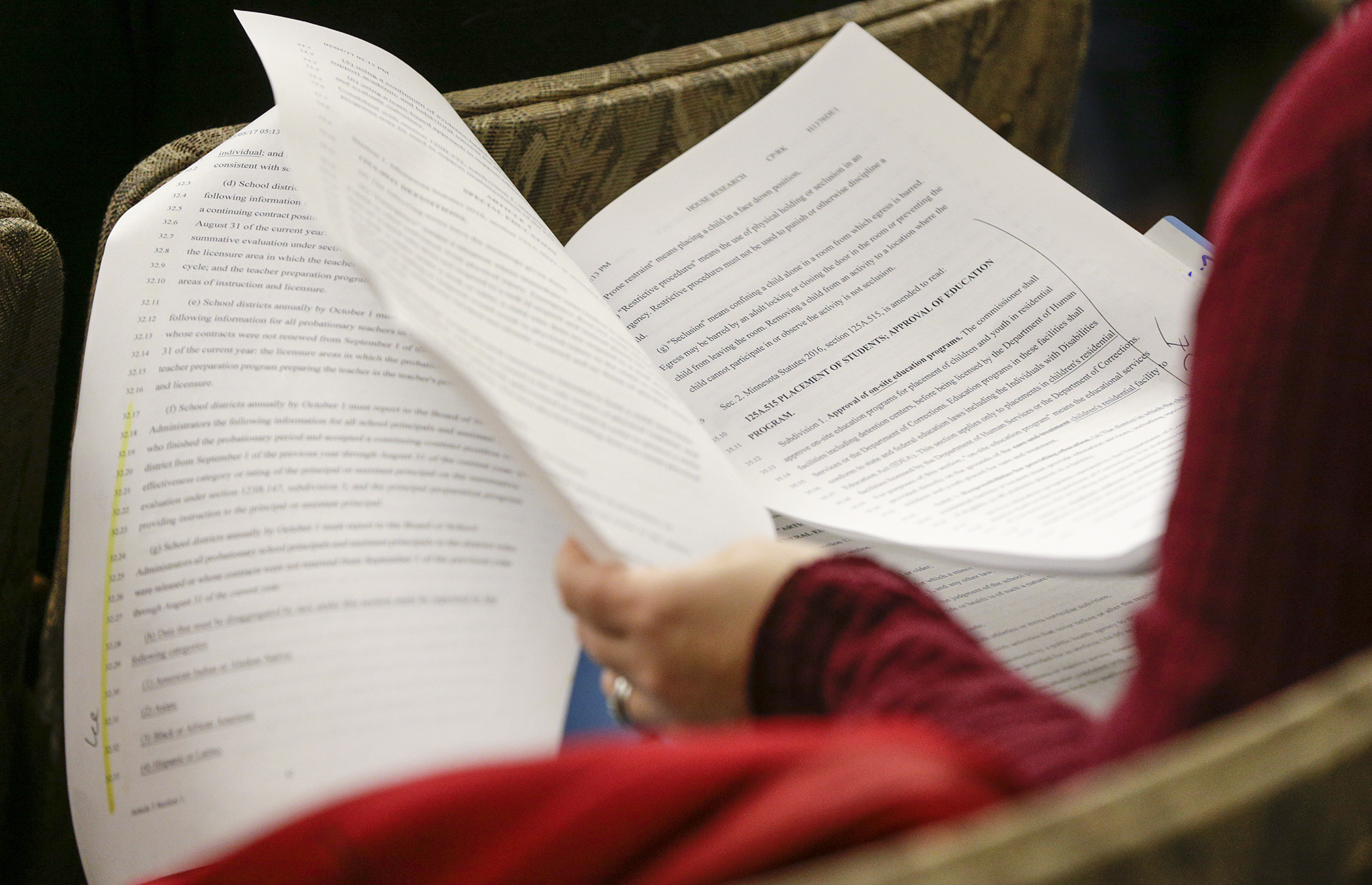Omnibus E-12 education policy bill aims to ‘do no harm’

Lawmakers eyeing education policy this session are focused on what has worked in the past while also offering future proposals that could “do no harm.”
“We tried to present a proposal that would have meat in it, and yet say to our school districts, ‘Do the job that we want you to do in educating our children.’ We at the Legislature will acknowledge that, rather than telling you more stuff to do,” said Rep. Sondra Erickson (R-Princeton).
Chair the House Education Innovation Policy committee, Erickson sponsors HF1376, the omnibus E-12 education policy bill, which was amended and tabled Tuesday for further discussion. Amendments are expected to be offered and action taken on the bill at Thursday’s 8:15 a.m. meeting.
The bill takes a deliberate step back from proposing major new initiatives, according to Erickson. She said it is the shortest omnibus education policy bill in years.
A new idea in the bill would enable school districts to provide up to five “E-learning days” due to inclement weather. Its enactment could mean the death of the student “snow day.”
“When we had a snow day before, students lost a day of instruction, districts spent $450,000, and there was no return on the investment for that day,” said Gary Amoroso, executive director of the Minnesota Association of School Administrators.
“With an E-learning day you have staff available [electronically], and students doing work. I value face-to-face instruction, but you’re still having an experience where staff and students are engaged; I believe that’s a positive,” Amoroso said.
The provision would not require districts to mandate E-learning days, but would instead empower them to begin implementing them if they choose.
“When I was teaching, a snow day meant staying in your bed,” Erickson quipped. “We want our children to learn regardless of the weather.”
WATCH Full video of committee discussion on the bill
However innovative the approach, internet connectivity access remained a universal concern among legislators.
“That can be a challenge,” Amoroso said. “I don’t think it’s as big of an issue as one might think, but I trust our staff and administrators to be creative and make [E-learning] days useful.”
Rep. Erin Maye Quade (DFL-Apple Valley) also cautioned that “internet in the home might not be the only barrier to students learning online,” citing situations such as special education students who would lose a day of individualized instruction, and those who attend day care programs.
Other notable provisions would:
- replace the high school General Education Development test with a new equivalency test;
- require school districts to report proficiency rates within performance reports that comply with World’s Best Workforce requirements;
- modify student open-enrollment policy by creating a tiered priority structure;
- clarify student use and possession of asthma inhalers to be consistent with statutes governing parental approval regarding the administration of drugs and medicines to students;
- add transportation of a student to and from a shelter care facility as a reimbursed expense under the pupil transportation formula;
- repeal the definition of “American Indian child” as a child enrolled in a federally recognized tribe under the American Indian Education Act;
- add instruction in “citizenship” and “economics” to student instruction curriculum;
- require teacher licensure data be disaggregated by race;
- add language to emphasize community involvement in character development education, encouraging districts to integrate it into positive behavior intervention strategy; and
- require the expanded use of assistive technology in special education with a report due the Legislature by Feb. 15, 2018.
What’s in the bill?
The following are selected bills that have been incorporated in part or in whole into the omnibus K-12 education policy bill:
Related Articles
Search Session Daily
Advanced Search OptionsPriority Dailies
Legislative leaders set 2026 committee deadlines
By Lisa Kaczke Legislative leaders on Tuesday officially set the timeline for getting bills through the committee process during the upcoming 2026 session.
Here are the three deadlines for...
Legislative leaders on Tuesday officially set the timeline for getting bills through the committee process during the upcoming 2026 session.
Here are the three deadlines for...